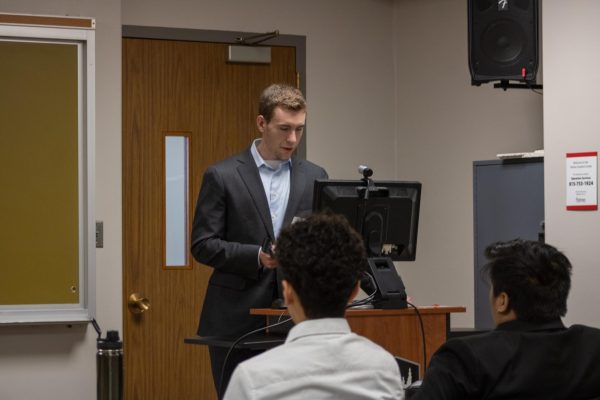OCR employees trained to look out for problems
January 31, 2005
Rebecca Lewis, fitness coordinator at NIU’s Office of Campus Recreation, wants students to know the OCR cares.
Lewis said Rec staff members are trained to help recognize potential problems, such as over-exercising or eating disorders.
“At the Rec, we utilize a ‘Caring Confrontation’ model for helping those with eating and exercise behaviors that we are concerned about,” Lewis said.
Anne Kubal, a counselor with the Counseling and Student Development Center, said her office takes referrals from the Rec. Eating disorders warrant serious consideration.
“Eating disorders and other body image related problems can involve both psychological and physical consequences,” Kubal said. “For example, eating disorders can lead to serious medical conditions that may be life threatening.”
Lewis said she encourages her employees to tell her their concerns about those exercising excessively or abusing themselves.
“I will observe them myself and do some follow-up to find out more about the person,” Lewis said. “I will then talk with the person directly to develop a relationship with them. We then discuss my concern and/or our staff’s concern for their behavior, and I make the resources we have on campus to assist known to them and offer to help.”
Lewis said those who use the Rec know it is not just a place for exercise but also a place to find help.
The OCR recommends the services of the Counseling and Student Development Center.
Kubal said the Rec and CSDC work together to benefit students.
“The collaborative relationship between the Counseling and Student Development Center and Recreation Services is important because it allows both departments, under the Division of Student Affairs, to reach out to a greater number of NIU students and help students reach their fitness and weight goals in a healthy way,” Kubal said.
Lewis said confidential counseling, education and support groups are available through many departments and programs at NIU.
The CSDC can conduct an eating disorder assessment in order to determine appropriate treatment.
“Although our departments may provide different services, our overall goals are the same – to create learning opportunities beyond the classroom that help students grow not only academically but personally as well,” Kubal said.













